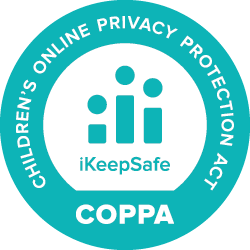Pitch Judging Rubric: Design for Recycling®
This form will be used to evaluate the Pitch of your Design for Recycling® solution.
Article Title:
Pitch Judging Rubric: Design for Recycling®
Description:
Students are given the criteria for judging their pitches.
Target Grade Level:
Grades K-12
Discipline or Course (Audience):
Any
Time Frame:
Introducing the Resource: 5 - 10 minutes
Using the Resource: Varying time frames throughout the challenge as students use the resource to inform their pitches and pitch decks
Suggested Grouping:
Individual, pairs, or whole class
Key Vocabulary:
renewable, recyclable, sustainable, recyclable,
Educator Prep:
Presenting the pitch is one of the most exciting parts of the competition for students (and teachers). All of the hard work each student has put in up to this point culminates in this persuasive presentation. As a standard rule, students only have 2-4 minutes to pitch their solution to the panel of judges (more on the judges below), though you, as a teacher, have control over how long students have to present. The suggested time constraint encourages students to be succinct and helps them to become effective communicators. In addition to overall winners, we encourage you to assign superlatives to all teams, such as awarding Best Business Design, Most Creative Solution, Best Pitch or Most Engaging Pitch, and Overall Best Solution.
Preparing Younger Students
Have a trusted adult work with teams of students to practice their pitches and give them feedback using this rubric so they are aware of what to expect. Feel free to copy and paste the rubric into a google document or word document and modify as needed to match the skills and background of your students.
Preparing a Panel of Judges
Students love the opportunity to share their work with people external to the classroom. In the past, we have seen panels of principals, parents, community members, college professors, and other experts from the field. For Design for Recycling® you might consider members of your community who have experience working in environmental roles, building upcycled products, or who are otherwise able to comment on the viability of consumer products. To help your judges prepare for their role, provide them with some background info, such as a link to the challenge website, or a copy of the Challenge Statement, Technical Brief Rubric, and Pitch Judging Rubric ahead of time so that they can understand what they are going to be judging. As for grading the pitch, some teachers use the Pitch Judging Rubric to assign a grade, some develop their own method for scoring the pitch, and still, others choose not to assign a grade to this part of the Challenge. We encourage you to think about what works best for your classroom and assessment practices.
STUDENT CONTENT BELOW THIS LINE
Evaluation Scale |
Important Reminders:
|
|
|
4 |
Excellent: Greatly exceeds expectations |
|
|
3 |
Good: Slightly exceeds expectations |
|
|
2 |
Average: Meets expectations |
|
|
1 |
Improving: Partially meets expectations |
|
|
0 |
Not Present |
|
Check the box that indicates the score received for that criteria.
Criteria: Evaluating the Solution |
4 points |
3 points |
2 points |
1 point |
0 points |
Comments |
|
Customer Satisfaction: The team shared how their solution adds value for customers. |
|
|
|
|
|
|
|
Materials: The team shared how their redesigned product and its packaging are more recyclable than the original product. |
|
|
|
|
|
|
|
Research: The team discussed the research they conducted and how it influenced their solution. |
|
|
|
|
|
|
|
Prototype: The team shared a sketch and prototype of their solution to show its feature and demonstrated that their solution will work under real-world conditions. |
|
|
|
|
|
|
|
Environmental Impact: The team shared their solution protects natural resources, reduces emissions, and minimizes the use of hazardous materials. |
|
|
|
|
|
|
|
Supply Chain: The team shared how their redesigned product can become part of an everyday item or essential infrastructure. |
|
|
|
|
|
|
|
Innovation: The team's solution shows creativity and imagination. |
|
|
|
|
|
|
Total Score Solution: ________ |
||||||
Criteria: Evaluating the Presentation |
4 points |
3 points |
2 points |
1 point |
0 point |
Comments |
|
Use of Visuals: Images and graphic design were used well and communicated key messages. Text is used well and placed strategically to enhance the presentation. |
|
|
|
|
|
|
|
Storyline: The presentation was professional and transitions through the pitch were smooth. |
|
|
|
|
|
|
|
Team: All team members demonstrated an understanding of their design and participated in the pitch. |
|
|
|
|
|
|
|
Error Free: The presentation materials were error-free, with correct grammar usage, punctuation, capitalization, and spelling. |
|
|
|
|
|
|
Total Score Presentation: ________ |
||||||
Overall Score: ___________________ |
||||||


